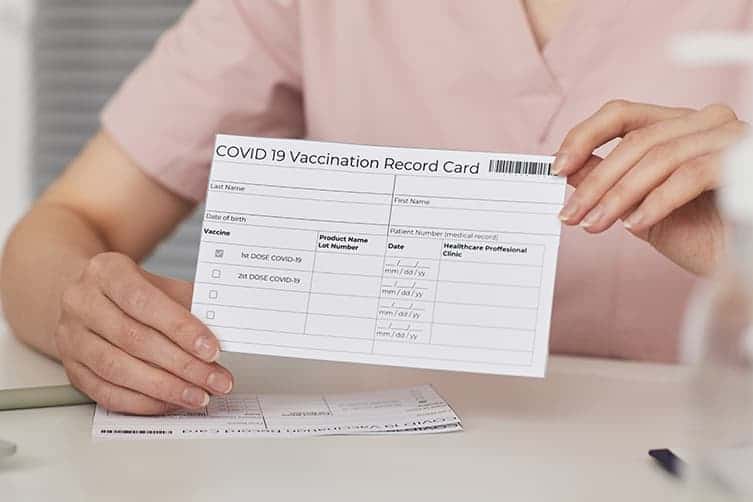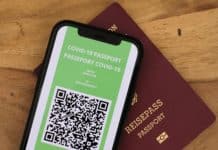
Once you have received the COVID-19 vaccine, how can you best safe-guard your proof of vaccination, and what happens if you lose the card and then later require it to travel or attend an event?
As more Americans become vaccinated against COVID-19, the vaccination record card issued by the U.S. Centers for Disease Control and Prevention is becoming an important document for travel and attending meetings and events safely.
But what should you do with your vaccination card after receiving the shot? One easy way to safeguard your proof of vaccination is to either scan or take a digital photo of both sides of the card, and back the image up somewhere safely. However, sharing the image to social media platforms such as Facebook and Instagram is strongly cautioned against by experts as it could lead to identity theft. The CDC-issued card contains a person’s date of birth and their first and last name, which are unique identifiers that could be used by scammers to steal an identity and commit fraud.
After you receive your vaccination, you should first notify your primary care doctor, a step that will assist health care providers in ensuring that your record of immunizations is up to date. The card itself should not be carried around with you at all times, but kept in a safe place along with other important documents such as your passport and social security card.
Organizations such as AARP have advised not to laminate the proof of vaccination card, as there is a possibility that further booster shots of the vaccine may be required in the future. Sealing the card in plastic would prevent a vaccine provider from adding any additional vaccine records to the original card. However, other experts argue that a more sophisticated record-keeping system for tracking proof of vaccination will have likely been implemented by the time a second booster shot may be required. Several companies are already producing plastic wallets for protecting your vaccination card as an alternative to lamination.
If you do lose your card, it is possible to source a replacement. The first step would be to contact the site where you received the vaccine and provide them with the date you received it and a photo ID. If the vaccine provider cannot issue a new card themselves, you can contact your state’s health department and request a replacement, as every vaccine administered is recorded with the state’s immunization registry.
A list of state contacts for immunization records can be found on the CDC’s website.










